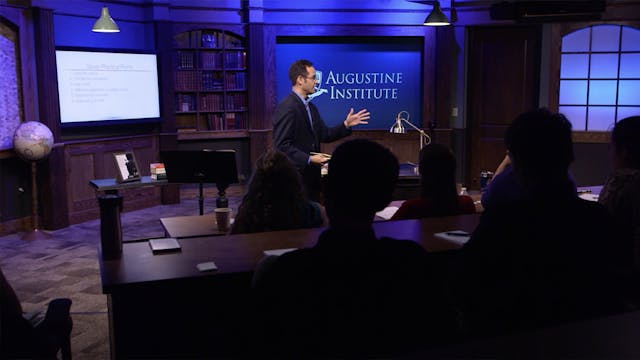In his letter to the Ephesians, St. Paul reminds us that we are to "[speak] the truth in love" (Ephesians 4:15). If we try to share the truth without love, we are very likely to do more harm than good.
In this session, we'll discuss how the goal of engaging with moral relativism is to share a beautiful message of hope and healing, not just to win an argument. The first two keys to doing this are to lead with mercy and to contrast the classical and relativistic worldviews so that each can be clearly seen for what it is. When we are able to do both of these, we are well on our way to a respectful, open, and honest dialogue.
Up Next in Season 1
-
"I Disagree" Doesn't Mean "I Hate You"
When we love people, we want the best for them—we don't want them to make choices that will lead to them getting hurt or being unhappy. But how do we find the right balance between expressing concern and sounding judgmental? And what can we do when someone accuses us of being intolerant just beca...
-
Exposing the Mask: What Relativism is...
Over the course of this study we have explored the classical view of morality and compared it to a relativistic worldview. But it's one thing to lay the philosophies out side by-side for comparison, and it is quite another thing to be in the midst of the difficulties and brokenness of this world ...
-
What is Truth? Answering Common Quest...
Challenging our relativistic culture is not easy. We must have a clear understanding of the classical view of morality and the importance of virtue and friendship, a picture of what real freedom looks like, and a vision for learning the art of living. And most importantly: the guiding and unifyin...




10 Comments